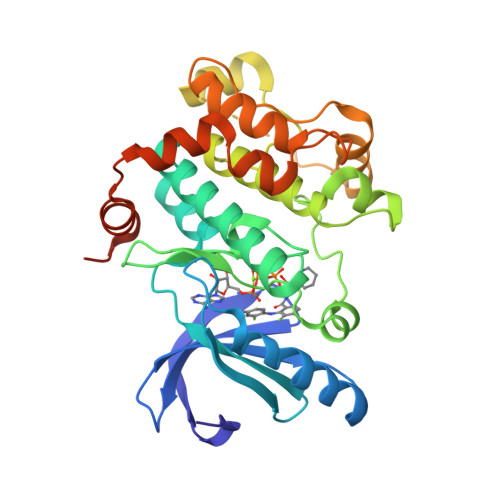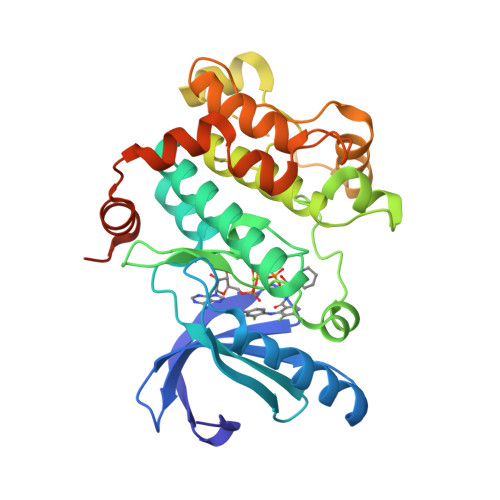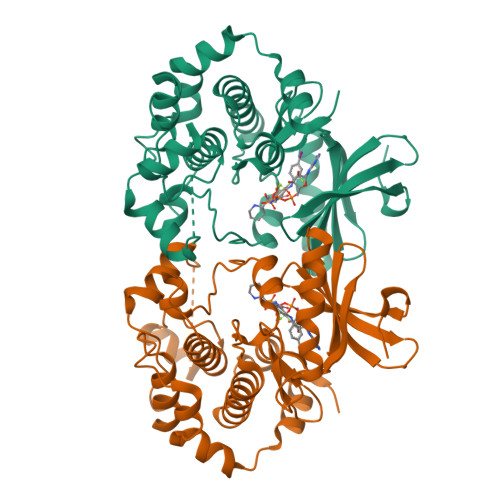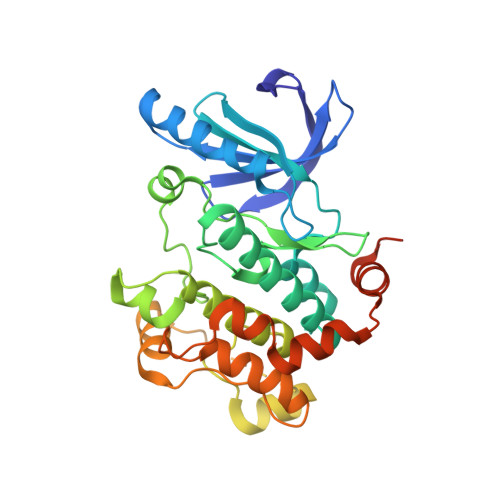Mechanism of MEK inhibition determines efficacy in mutant KRAS- versus BRAF-driven cancers.
Hatzivassiliou, G., Haling, J.R., Chen, H., Song, K., Price, S., Heald, R., Hewitt, J.F., Zak, M., Peck, A., Orr, C., Merchant, M., Hoeflich, K.P., Chan, J., Luoh, S.M., Anderson, D.J., Ludlam, M.J., Wiesmann, C., Ultsch, M., Friedman, L.S., Malek, S., Belvin, M.(2013) Nature 501: 232-236
- PubMed: 23934108
- DOI: https://doi.org/10.1038/nature12441
- Primary Citation of Related Structures:
4LMN - PubMed Abstract:
KRAS and BRAF activating mutations drive tumorigenesis through constitutive activation of the MAPK pathway. As these tumours represent an area of high unmet medical need, multiple allosteric MEK inhibitors, which inhibit MAPK signalling in both genotypes, are being tested in clinical trials. Impressive single-agent activity in BRAF-mutant melanoma has been observed; however, efficacy has been far less robust in KRAS-mutant disease. Here we show that, owing to distinct mechanisms regulating MEK activation in KRAS- versus BRAF-driven tumours, different mechanisms of inhibition are required for optimal antitumour activity in each genotype. Structural and functional analysis illustrates that MEK inhibitors with superior efficacy in KRAS-driven tumours (GDC-0623 and G-573, the former currently in phase I clinical trials) form a strong hydrogen-bond interaction with S212 in MEK that is critical for blocking MEK feedback phosphorylation by wild-type RAF. Conversely, potent inhibition of active, phosphorylated MEK is required for strong inhibition of the MAPK pathway in BRAF-mutant tumours, resulting in superior efficacy in this genotype with GDC-0973 (also known as cobimetinib), a MEK inhibitor currently in phase III clinical trials. Our study highlights that differences in the activation state of MEK in KRAS-mutant tumours versus BRAF-mutant tumours can be exploited through the design of inhibitors that uniquely target these distinct activation states of MEK. These inhibitors are currently being evaluated in clinical trials to determine whether improvements in therapeutic index within KRAS versus BRAF preclinical models translate to improved clinical responses in patients.
Organizational Affiliation:
Department of Translational Oncology, Genentech, Inc., 1 DNA Way, South San Francisco, California 94080, USA. hatzivassiliou.georgia@gene.com






















